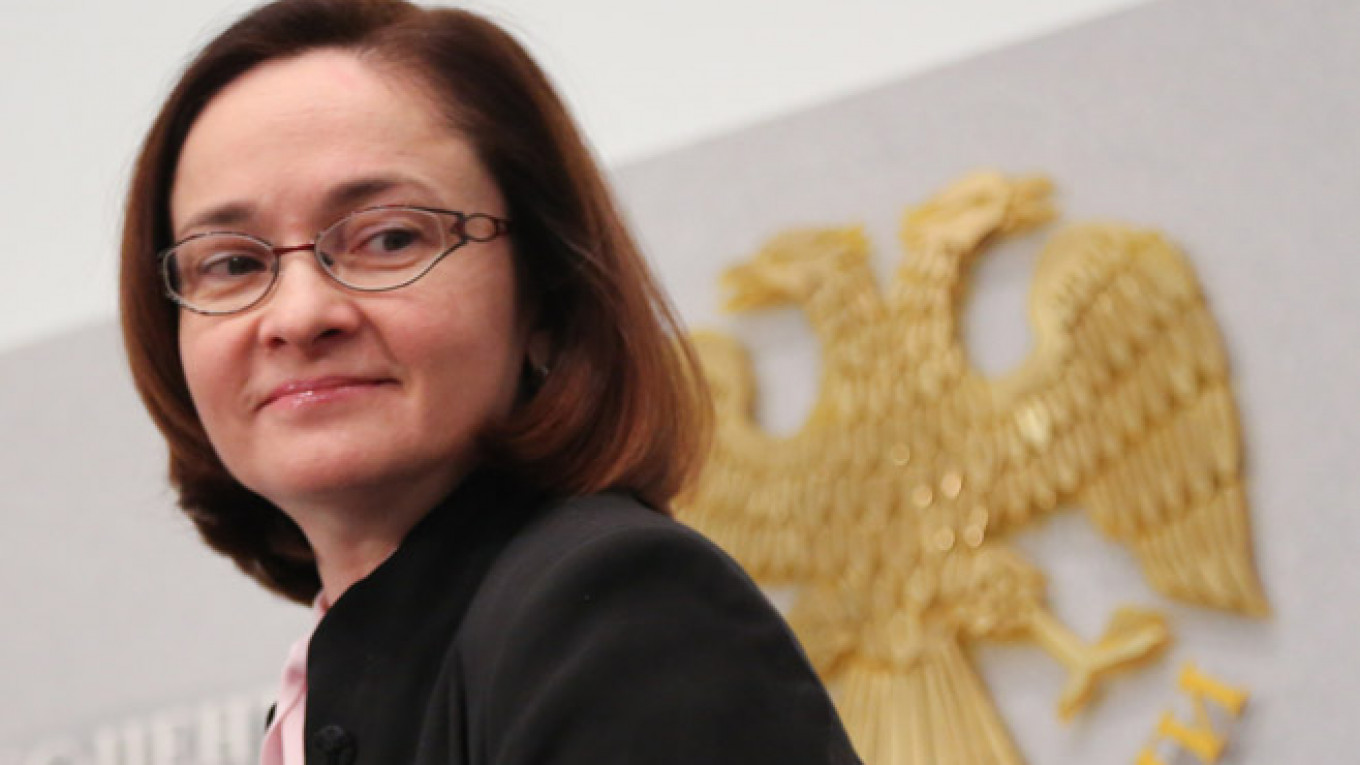Visa and MasterCard can avoid paying a security deposit of up to $2.9 billion if they can find Russian partners to process payments within the country by Oct. 31, Central Bank chief Elvira Nabiullina said Tuesday at a banking conference in St. Petersburg, PRIME reported.
Reuters reported earlier that MasterCard had already started searching for a Russian partner to help it circumvent the law.
Also Tuesday, President Vladimir Putin signed a law giving the government and the Central Bank the right to determine the specifics of how international payment systems will pay the security deposit, as well as to decide how fines will be levied for failing to pay.
With this new legislation, the government has effectively backtracked on a controversial law passed in May that had risked pushing Visa and MasterCard out of the Russian market altogether.
The two companies, which together process about 90 percent of payments in Russia, inadvertently set off a movement to end Russia's dependence on foreign payment systems when they halted service to two Russian banks in March to comply with U.S. sanctions imposed following the annexation of Crimea.
The earlier law, which was signed by Putin in May, both lay the groundwork for creating a national payment system to replace foreign players and required international payment systems to submit a? massive security deposit to the Central Bank in? order to? continue operating in? Russia.
Morgan Stanley analysts previously estimated that the joint deposit could amount to $2.9 billion, or five times more than Visa and MasterCard's joint annual revenues in Russia, although Deputy Prime Minister Igor Shuvalov later said that the deposit could be "substantially reduced."
See also:
A Message from The Moscow Times:
Dear readers,
We are facing unprecedented challenges. Russia's Prosecutor General's Office has designated The Moscow Times as an "undesirable" organization, criminalizing our work and putting our staff at risk of prosecution. This follows our earlier unjust labeling as a "foreign agent."
These actions are direct attempts to silence independent journalism in Russia. The authorities claim our work "discredits the decisions of the Russian leadership." We see things differently: we strive to provide accurate, unbiased reporting on Russia.
We, the journalists of The Moscow Times, refuse to be silenced. But to continue our work, we need your help.
Your support, no matter how small, makes a world of difference. If you can, please support us monthly starting from just $2. It's quick to set up, and every contribution makes a significant impact.
By supporting The Moscow Times, you're defending open, independent journalism in the face of repression. Thank you for standing with us.
Remind me later.


